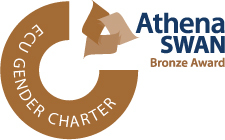Department of English Studies

Welcome to the Department of English Studies
The Department of English Studies submitted 55 members of staff, comprising 48.81 Full-Time Equivalent (FTE) staff, to the REF English Language and Literature UoA. The submission included eight Early Career Researchers.
Outputs
Our publications cover all periods of literary history as well as anglophone literatures and literary theory, including:
- Award-winning creative writing, such as Kayo Chingonyi's poetry collection, Kumukanda, winner of the Dylan Thomas Prize and the Somerset Maugham Award 2018
- Major contributions to scholarship, like The Norton Chaucer, edited by David Lawton
- Ground-breaking studies in world literatures, such as Maryam Mirza's Intimate Class Acts: Friendship and Desire in Indian and Pakistani Women's Fiction
- Interdisciplinary collaborations including The Edinburgh Companion to the Critical Medical Humanities, edited by Angela Woods, sharing understandings of the human body in the wider world.
-300x157.png)

Supporting voice-hearers and changing perceptions
Our Hearing the Voice project – drawn from research from across the University - is providing resources to help voice-hearers, their families and mental health professionals.
About Us
The Department is one of few globally which is committed to research and teaching across the full historical spread of English literature, from contemporary writing back to the early medieval period. We’re equally committed to research and teaching in global anglophone writing from many regions, nations, and cultures.
We’re in the World Top 50 (36=) in the QS World University Subject Rankings 2022, and we’re 3rd in The Times and Sunday Times Good University Guide 2022, 4th in The Complete University Guide 2022 and 5th in The Guardian University Guide 2022.
Much of our work, cutting across historical periods, connects to the ‘new humanities’: medical, environmental, and digital – we have a particularly close connection with the Institute for Medical Humanities and are global leaders in this field. We also have emerging areas of research and teaching in disability studies, sensory studies, the cognitive humanities, and Black Studies, amongst many others.
We offer the chance to study creative writing at undergraduate, MA, and PhD level, working with renowned poets and authors who are regularly publishing with significant presses, and receiving prizes for their work.
We’ve expanded substantially in recent years, strengthening the historical and topic range of our teaching and research, and making possible new collaborations within and beyond the academy. Our globally significant research shapes our teaching, and all our staff work with our students – there is no such thing as a ‘research-only’ professorship in our department.
Find out about our equality, diversity, and inclusion commitments
Our impact activity balances regional and national commitments with a global outlook, working with local communities, national networks, and international partners.
Our REF achievements draw on work with our students through teaching and research activity. They also indicate new areas for undergraduate teaching and postgraduate supervision. We are all ‘research active’; we all undertake ‘research-led teaching’. The REF shows that our community, from first-year undergraduate students to our most experienced professors, succeeds in providing significant and original research insights, and has demonstrable impacts on wider society.
English Studies REF Impact Case Studies
Research Themes
The Department is significantly involved in University Centres and Institutes, including leadership roles at the Institute for Medieval and Early Modern Studies, the Centre for Modern Cultures and Conflicts, the Centre for Culture and Ecology, and the Institute for Medical Humanities amongst others.
Like to Know More?
The Department has particular strengths in medieval and early modern studies, eighteenth and nineteenth-century literature, modernism and twentieth-century literature, world literatures and literary theory and creative writing. There are additional strengths in a number of trans-historical topics, including medical humanities, digital humanities, poetics, and textual editing.
Recent work in the Department has helped to develop the discipline of medical humanities and encouraged a trans-historical interest in the relationships between literature, medicine and science. There is a strong environment of creative writing, including creative non-fiction, among staff and students, and there are further specialisms in American, African, Indian and Pakistani, and Irish writing.



/prod01/prodbucket01/media/durham-university/departments-/english-studies/research/breathe-in_600X400.jpg)
/prod01/prodbucket01/media/durham-university/departments-/english-studies/research/Screenshot-2021-10-14-155510.jpg)
/prod01/prodbucket01/media/durham-university/departments-/english-studies/research/IMG_20180920_183717.jpg)
/prod01/prodbucket01/media/durham-university/departments-/english-studies/research/Reed-NE.jpg)

/prod01/prodbucket01/media/durham-university/research-/research-institutes/institute-of-medieval-and-early-modern-studies/research-strands/66113.jpg)
/prod01/prodbucket01/media/durham-university/professional-services/job-vacancies/71746.jpg)